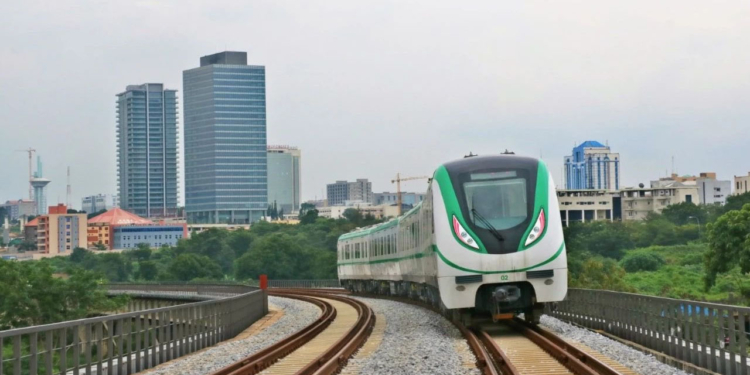The Nigerian Railway Corporation (NRC) has restarted the movement of cargoes in containers from Lagos to Dala Inland Dry Port in Kano state and Kaduna Inland Dry Port.
This was confirmed by the managing director of Inland Containers Nigeria Limited (ICNL), Ismail Yusuf while addressing journalists in Lagos.
He said about 40 containers have been moved so far.
He added that an additional 40 empty containers have been returned through the same mode to Lagos from the Kano and Kaduna Inland Dry Port, which is a subsidiary company of ICNL.
Yusuf said the movement by rail would contribute to cost reduction, save time and ensure the safety of the consignments being moved by rail.
According to him, it will now cost half of what is presently spent on road haulage to move containers by rail.
He explained that ICNL is still in talks with NRC to deploy additional coaches to the port operation because his company has cargoes on the ground to be moved.
“As you know that the federal government is encouraging the Nigerian Railway Corporation to ensure movement of cargo from the sea port to the hinterland and this is very critical to our Kano bonded terminal and Kaduna Inland Dry Port, which is our subsidiary company,” Yusuf said.
“The management of ICNL and Kaduna Dry Port has led the management of the railway corporation to discuss the modalities of how they can come back to life. We thank God that our request has been acceded to and this is the outcome of our discussion.
“Presently, they have supplied us with two rails for the last two weeks. We have moved about 40 containers, and this will continue every fortnight until we attain maximum capacity.
“The number of containers being moved also depends on the availability of locomotives, and as long as we have enough cargos to load.
“We have started from somewhere: from one to two rails, and from there we can increase it to four or five rails.
“We are talking with NRC on how we can increase the capacity to meet the yearnings of customers who want to use the services of the rail corporation. Time spent on the movement is a minimum of forty-eight hours and a maximum of seventy-two.”
Recall that the NRC in September 2020 suspended the movement of containers by rail from Apapa port for rehabilitation of the rail tracks.








Discussion about this post